11
Jul
Centralise your Outlook Archive .PST files using MailStore
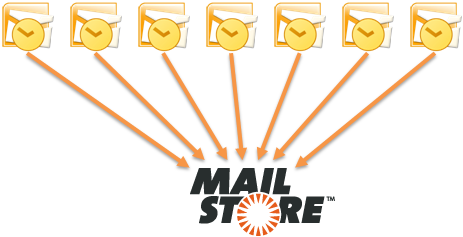 We have recently seen an increase in customers wanting to bring a large selection of PST files into their MailStore archive. It's quite common for people to create local PST file archives of their own email and historically this was a common way to reduce the data within the mailbox on their mail server. The problem we see is that over time many users build up multiple local PST files and as these are scattered around on various client machines it gets very difficult and costly to keep them all backed up. If you also consider in this scenario there is also no way for users to search each others archive it makes it very difficult to meet compliance requirements.
We have recently seen an increase in customers wanting to bring a large selection of PST files into their MailStore archive. It's quite common for people to create local PST file archives of their own email and historically this was a common way to reduce the data within the mailbox on their mail server. The problem we see is that over time many users build up multiple local PST files and as these are scattered around on various client machines it gets very difficult and costly to keep them all backed up. If you also consider in this scenario there is also no way for users to search each others archive it makes it very difficult to meet compliance requirements.
09:37 /
MailStore


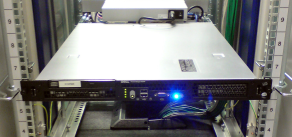 As part of ongoing improvements to our own network, I recently revised the way we approach backing up the SQL database that underpins our main company Web site. We currently host the web and SQL server in a local data centre and were taking off-site daily backups using a combination of BackupAssist and the Rsync add-on. This was adequate for restoring a snapshot of the website or database to the previous day, but I wanted to improve the frequency of our backups given how often the database is changing as we take orders throughout the day. Luckily BackupAssist was there to help!
As part of ongoing improvements to our own network, I recently revised the way we approach backing up the SQL database that underpins our main company Web site. We currently host the web and SQL server in a local data centre and were taking off-site daily backups using a combination of BackupAssist and the Rsync add-on. This was adequate for restoring a snapshot of the website or database to the previous day, but I wanted to improve the frequency of our backups given how often the database is changing as we take orders throughout the day. Luckily BackupAssist was there to help!
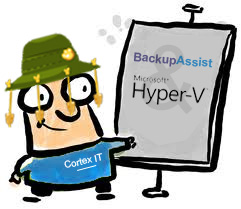 Our Aussie friends over at BackupAssist developer Cortex IT, have opened up a great opportunity for our partners to attend the first in what we hope will be a series of online Webinar/ Q&A sessions.
They're presented directly by the BackupAssist development team and are a unique chance to hear about BackupAssist's Hyper-V backup capabilities while also providing feedback should you wish.
Our Aussie friends over at BackupAssist developer Cortex IT, have opened up a great opportunity for our partners to attend the first in what we hope will be a series of online Webinar/ Q&A sessions.
They're presented directly by the BackupAssist development team and are a unique chance to hear about BackupAssist's Hyper-V backup capabilities while also providing feedback should you wish.
 I came across an issue on a support call the other day I thought worth sharing as it's bound to be something a few of you will see too.
I came across an issue on a support call the other day I thought worth sharing as it's bound to be something a few of you will see too.
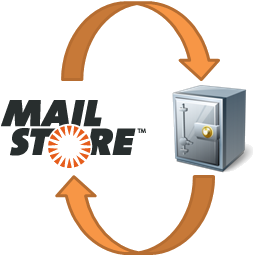 In the last couple of weeks I've come across a few customers with MailStore installations where they've experienced corruption of their archived data due to either a damaged disk, RAID failure or power outage for example.
All of these situations are of course completely outside of MailStore's control but they're ones where the only practical recovery method is to rebuild from a previous backed up version of the MailStore data.
In the last couple of weeks I've come across a few customers with MailStore installations where they've experienced corruption of their archived data due to either a damaged disk, RAID failure or power outage for example.
All of these situations are of course completely outside of MailStore's control but they're ones where the only practical recovery method is to rebuild from a previous backed up version of the MailStore data.

 Some of our most common MDaemon support enquiries we get relate to users receiving spam.
Typically the amount of spam has either suddenly increased and there is a flood of junk messages or its just a specific message that looks to be obviously spam but has somehow made its way through.
Before picking up the phone to support you might find it useful to follow this simple guide to find out why MDaemon has not treated this message quite as expected.
Some of our most common MDaemon support enquiries we get relate to users receiving spam.
Typically the amount of spam has either suddenly increased and there is a flood of junk messages or its just a specific message that looks to be obviously spam but has somehow made its way through.
Before picking up the phone to support you might find it useful to follow this simple guide to find out why MDaemon has not treated this message quite as expected.
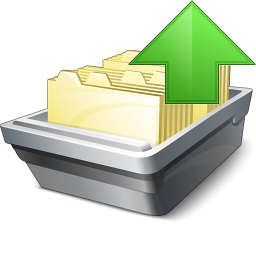 Using the MailStore search feature makes it very easy to find messages. Once you've located the message you're after, MailStore gives you a few options such as view, reply, forward or restore, which make it easy to manage single messages however you wish.
In this post I'm going to take a look at how you can use MailStore to take this a step further and quickly restore whole folders, complete with the messages they contain to various destinations.
Using the MailStore search feature makes it very easy to find messages. Once you've located the message you're after, MailStore gives you a few options such as view, reply, forward or restore, which make it easy to manage single messages however you wish.
In this post I'm going to take a look at how you can use MailStore to take this a step further and quickly restore whole folders, complete with the messages they contain to various destinations.
 Finding the email you're after in MailStore using the Outlook search plug-in is beautifully straight forward. In the vast majority of cases simply entering the word you think is likely to appear in the to/from address, subject, message body or even in attachments is enough, however every so often it can be useful to have the ability to whittle down your search results further or be more specific.
Finding the email you're after in MailStore using the Outlook search plug-in is beautifully straight forward. In the vast majority of cases simply entering the word you think is likely to appear in the to/from address, subject, message body or even in attachments is enough, however every so often it can be useful to have the ability to whittle down your search results further or be more specific.